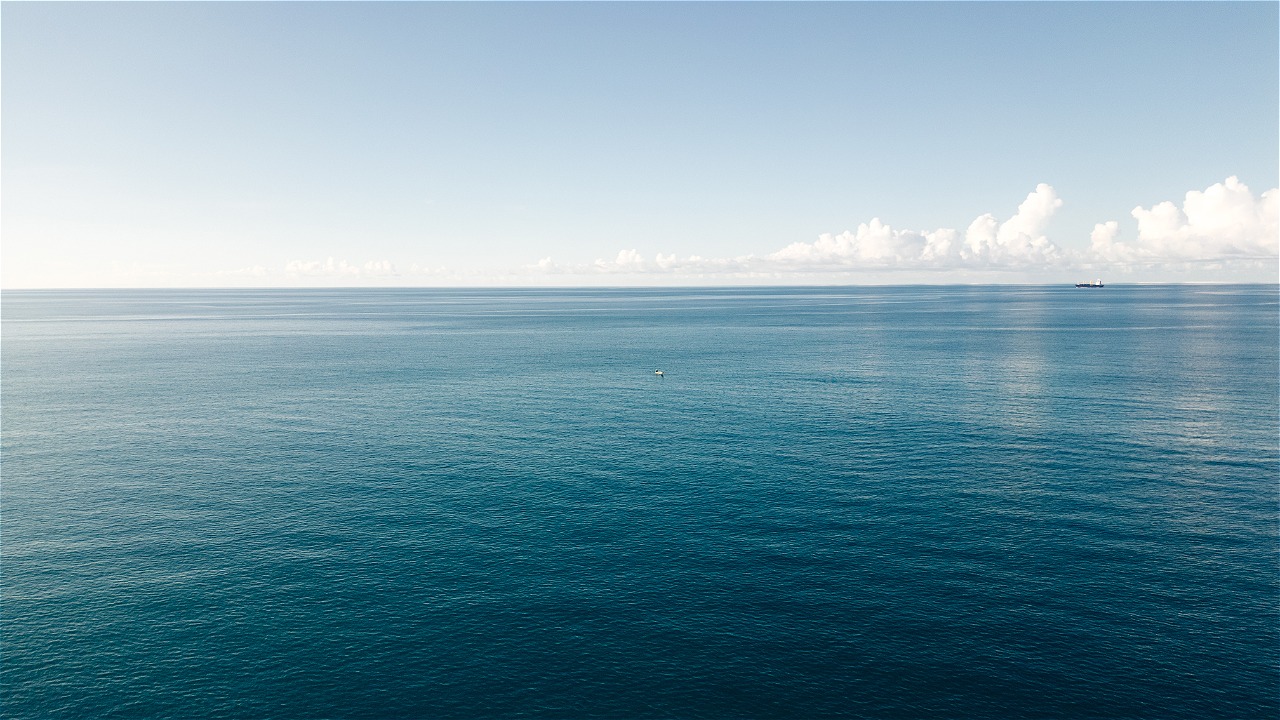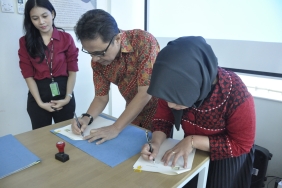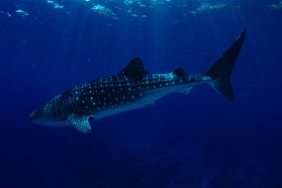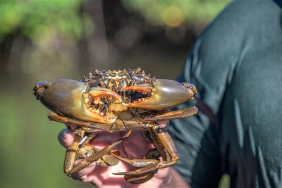HADINGMULUNG, LOCAL WISDOM OF BARANUSA KINGDOM, ALOR
Author: Tutus Wijanarko (Community Rights Based Management Officer, WWF-Indonesia Lesser Sunda Project)
The potential of coastal and marine areas supports the kingdom of Baranusa, which is now within the administrative area of West Pantar District, Alor Regency, East Nusa Tenggara. This potential is a source of food and livelihood for the community. In the past, the customary law council of the Sandiata Tribe and the King of Baranusa agreed to manage the waters of Lapang and Batang Islands by conducting "Hadingmulung".
Hadingmulung (Hading means open, and Mulung means close) is a local wisdom of the local community in the form of a system of regulating the utilization of marine resources periodically with the aim of preserving and sustaining marine resources. Within a certain period of time agreed by the customary law council and the King, the Hadingmulung area will be closed. Marine resource utilization activities are not allowed at all. After the "closed" period is over, the resources can be utilized again jointly. The marine resources agreed to be managed under Hadingmulung include clams, snails, lola, sea cucumbers, reef fish and pelagic fish.
At least twice the implementation of Hadingmulung has been recorded. The first was during the royal era until around the 1950s during the MPHS (Temporary Daily Leadership Council) during the transition at the beginning of Indonesian independence. In this period, the prevailing regulations were customary regulations. Then in the period of village administration between the 1960s and 1990 the Hadingmulung rule was reinstated. Its implementation was regulated by village government regulations with direct involvement from village officials (babinsa).
The level of community compliance with this regulation was quite high before the late 1970s. Anyone who violated it would receive social sanctions from the Raja. These included sitting under a table and then being given advice by the King or running around the village field. This serves to provide a deterrent effect and shame.
Local people also believe that the law of nature will apply to anyone who violates the Hadingmulung rule, i.e. violators will be eaten by crocodiles. In addition, the Hadingmulung regulation is also supported by the government through tight security by babinsa in the area where Hadingmulung is carried out. For anyone who wants to take marine resources, they must get a letter of approval from the village government.
Hadingmulung On the Threshold
Along with the times, the Hadingmulung tradition has begun to fade and even disappear. "Starting in the late 1970s or 1977 to be precise, Hadingmulung was no longer applied and obeyed by the people of Baranusa Kingdom," said Mr. BK Hobol, one of the elders of the customary council. One of the reasons for this is the increasing need for food in the community due to population growth.
The surge in the population of the Baranusa Kingdom at that time came from the movement of migrants from various regions such as Makassar, Maluku and Solor. The entry of the modernization era is also the cause of the community starting to abandon customary cultural traditions. Their thinking changed to be more practical and demanded fast-paced fulfillment of life's needs. The negative effect is the massive exploitation of marine resources such as clams, sea cucumbers, snails and lola. The impact is increasingly felt decades later, as the stock of marine resources continues to decrease and is difficult to find.
The Importance of Local Wisdom
WWF-Indonesia sees this local wisdom as an opportunity to encourage the indigenous people of Baranusa Kingdom to utilize marine resources sustainably and responsibly. The wisdom of Hadingmulung needs to be revived. Since 2014, WWF has conducted studies and encouraged an agreement between the customary law council, village government and the community of West Pantar Sub-district in reviving marine resource management with Hadingmulung.
The goal of the agreement is to create a shared awareness among community elements about the threats and needs related to marine resources in the waters of the Baranusa Kingdom (including the waters of Lapang and Batang Islands). The main threat comes from the rampant illegal capture of marine resources by fishermen outside the Alor Regency area in the waters of Lapang and Batang Islands. While the needs referred to here are the need for marine resources to meet the food and economic needs of the community.
"We feel that our marine resource area is threatened. The theft of marine products in our area has become more rampant day by day, especially from outside fishermen. The use of potassium by them has also affected the decline in the quality of seaweed cultivated by the community in Lapang Island. As the government and community, we consider it important to revive local wisdom and protect our marine resources. Not just relying on sea patrols by the authorities," said West Pantar Sub-District Head Mahuri A.P Uba.
This effort to revive local wisdom received a positive response from the Alor Regency Government, in this case the Marine and Fisheries Service. The role of customary law communities with their customary territories is expected to be well integrated in the Pantar Strait Sanctuary (SAP) management plan in the waters of Alor Regency. In addition, the customary territories or Hadingmulung of the Baranusa Kingdom in the waters of Lapang and Batang Islands which also intersect with the core zone and protection zone are expected to strengthen the management of regional marine protected areas managed by the Regional Government of Alor Regency. The core zone is a no-take zone that aims to maintain the availability of fish stocks. Meanwhile, the protection zone is a zone designed as a place for natural rehabilitation of damaged coral reef ecosystems to support the availability of shelter for reef fish populations.
To encourage the implementation of the wisdom of Hadingmulung,WWF-Indonesia conducted a status assessment of the customary customary area of the Baranusa Kingdom in Blangmerang Village (Lapang Island and Batang Island waters). This study includes a study of coral reef ecosystems, fish resources, and a socio-economic study to determine community perceptions related to the implementation of Hadingmulung. The results of this study will then be developed into recommendations for the customary council and village government in developing the Hadingmulung mechanism in the future.





